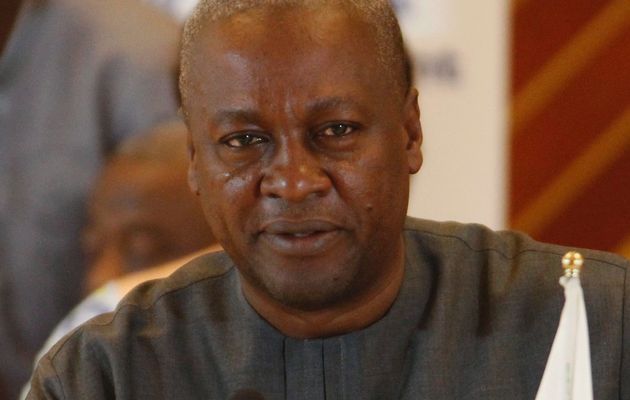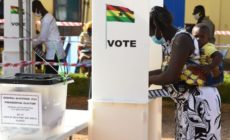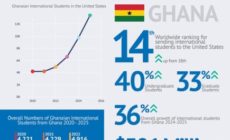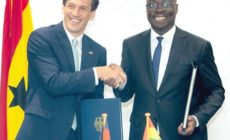IMF’s plan for Ghana
- Posted on
- Comment
 AS Ghana concludes negotiations with the International Monetary Fund for a bail-out package, whether financial, purely advisory or most likely a combination of the two, to reverse the country’s deteriorating economy, the accompanying policy package – commonly referred to as conditionalities – that the Bretton Woods institution will insist on has already been more or less determined. These are contained in the IMF Staff Appraisal Report on Ghana released in May this year.
AS Ghana concludes negotiations with the International Monetary Fund for a bail-out package, whether financial, purely advisory or most likely a combination of the two, to reverse the country’s deteriorating economy, the accompanying policy package – commonly referred to as conditionalities – that the Bretton Woods institution will insist on has already been more or less determined. These are contained in the IMF Staff Appraisal Report on Ghana released in May this year.
To be sure, the IMF agrees with and supports most of the measures already being introduced by government to reduce the twin fiscal and external account deficits. These include the 2.5% hike in the Value Added Tax rate implemented at the beginning of the year and the extension of its coverage to previously exempted activities, as well as the introduction of an ad valorem tax on fuel, and the raising of taxes on rent for non-residential accommodation, management and technical services fees, and free zones companies selling on the local market.
Also already agreed on are tight budget limits on the public wage bill through a freeze on wage increases and net hiring in most sectors, as well as a range of measures to improve monitoring and control, including an improved payroll database, audits and the introduction of an electronic payment voucher system.Add to this agreement between government and the IMF on a moratorium on new contracts, the alignment of investment programmes of statutory funds with national priorities to avoid duplication of effort and the creation of a Ghana Infrastructure Fund [GIF] to leverage private financing of infrastructure projects and improve their selection and implementation.
However, the IMF, based on the report of its latest mission to Ghana, is arguing for “deeper irreversible reforms to entrench significal.nt medium-term consolidation.”
Says the IMF “A credible programme for reducing the public wage, including streamlining of subvented agencies, will be key for addressing imbalances, restoring confidence, and creating fiscal space for priority spending. At the same time, public financial management reforms should be accelerated and combined with a relaxation of rigid earmarking of tax revenue.” The IMF also sees the scope for raising revenue by reducing tax expenditure and increasing compliance, in line with the recommendations of recent Fund technical assistance missions. Add to this the demand for increased transparency of revenue and expenditure allocations at all levels.
The IMF’s immediate plans for the Ghanaian economy, which will take the form of short-term policy measures, are based on its expectations that “constrained foreign financing and limited scope to boost exports in the short term will keep pressure on the cedi, forcing an adjustment in imports and keeping inflation high.” The IMF’s baseline forecast assumes a contraction in the current account deficit by 2.5% of GDP in 2014, with high interest rates and the cedi’s depreciation slowing growth to a projected 4.75%. Says the IMF “This will raise government interest payments and dampen revenue, implying a projected fiscal deficit of 10.25% of GDP.”
According to the IMF, “Ghana’s main vulnerability arises from its large twin deficits in the context of a low reserve buffer, sustained by swaps and bridging loans. The sum of Ghana’s non-Foreign Direct Investment financed current account deficit, amortization of foreign loans, maturing bonds held by non-resident, and maturing swaps and bridging loans, amounts to a gross external financing need of US$4.3 million in 2014 – corresponding to about three-quarters of the reserve stock as at the end of 2013. Against this background, a further weakening in the terms of trade, or a larger outflow of foreign financing, could have a significant impact on reserves and force a more drastic depreciation of the cedi and import compression. Interest rates would have to be hiked by more to contain an accelerating inflation rate, while lower revenue combined with higher interest payments would further widen the fiscal deficit.”
This is precisely what is now happening.
To rectify the situation, the IMF recommends a plethora of short term policy measures aimed at creating additional savings of about 1.75% of GDP within one year, through a combination of revenue and expenditure measures.
Proposed revenue measures comprise: introduction or increase of selective tax rates such as higher ad valorem tax, or VAT and on fuel; higher excises on specific products and ; higher tax rate on real estate along with stepped up registration and valuation efforts. Add to this an immediate freeze on new tax exemptions and; better identification and targeted auditing of large taxpayers.
Expenditure measures planned by the IMF include a reduction in government’s wage costs through the streamlining of allowances, starting with public sector employees at higher income levels. Another measure in this direction will be the non-replacement of departing public sector employees in overstaffed areas.
There will be further prioritization of capital spending, combined with reduction in transfers to statutory funds to the lowest permissible levels. Also, there is to be a reduction in, or possibly the complete elimination of transfers from government’s purse to the Ghana National Petroleum Corporation.
In addition to these new measures the IMF will insist on the rigorous enforcement of already agreed commitments such as tight wage limits and no aggregate subsidies on fuel and utilities. Importantly, the IMF wants electricity tariffs to rise temporarily above cost-recovery levels – once gas comes on stream – to compensate for the under-pricing that is currently taking place.
Beyond these policy responses to the immediate, most pressing challenges facing the Ghanaian economy, the IMF also wants what it calls “deeper, irreversible reforms to entrench significant medium-term consolidation”.
Says the IMF “a credible programme for reducing the public wage bill, including streamlining of subvented agencies, will be key for addressing imbalances, restoring confidence, and creating fiscal space for priority spending. At the same time, public financial management reforms should be accelerated and combined with a relaxation of rigid earmarking of tax revenue”.
The Fund reckons that its proposed adjustment scenario would allow Ghana’s fiscal deficit to fall to 4.5% in 2016 and 1.75% by 2019.Consequently, the IMF has drawn up several medium term structural measures for implementation by Ghana.
Revenue enhancement measures include legislative revisions to streamline tax exemptions permanently and to strictly constrain the power to grant them as well as a thorough review of the tax regime for free zones to reduce tax expenditures. Also on the table is a reconsideration of the proposed windfall tax on mining [which fits in with government’s current thinking] and the strengthening of tax administration, focusing on improved compliance, particularly by large taxpayers.
On the expenditure side, the IMF wants government to enter into multi-year wage agreements consistent with fiscal consolidation plans, and a specific programme to reduce the public work force while improving the skill mix. The Fund also wants full integration of spending by statutory funds in the overall investment programme, combined with a review of possible legislative changes to replace rigid transfer rules. Add to all these the acceleration of various public financial management reforms, including the Ghana Integrated Financial Management Information System [GIFMIS], the Treasury Single Account, and payroll and Human Resource management.
The IMF will also engage the Bank of Ghana [BoG], with regards to monetary policy as well. To contain short-term pressures, the Fund wants the BoG to continue its efforts to lengthen the maturity structure of its existing swaps and bridging loans beyond the third quarter of 2014 and demands that once external pressures subside, international reserves should be rebuilt, and the volume of swaps should be reduced and limited to the management of seasonal balance of payments volatility.
The IMF also wants the BoG to reduce its direct financing of government which, the Fund notes amounted to 7.5% of current year revenue in 2013, thus exceeding the central bank’s own target of 5%. Instructively, the BoG financed government to the tune of 10%of this year’s revenue target during the first quarter of the year alone, attracting scathing criticism from Fitch Rating Agency. In its defence though the BoG claims that this was primarily in response to a seasonal shortfall and itys net financing position will be pulled back during the second half of the year.
The Fund further wants the BoG to adapt a unified, market-determined exchange rate since the use of different exchange rates lacks transparency, can create distortions and gives rise to a multi-currency practice. Finally, the IMF wants the end-of-year inflation target replaced with a rolling target, set for a 1-2 year policy horizon.
Many of the IMF’s demands will be negotiated by government to ameliorate the possible political back-lash from the most unpopular ones. However with government desperate for an endorsement of its economic management agenda in order to improve its credibility and credit-worthiness among the international financial community, the IMF will be negotiating from a position of strength, and with the knowledge that even in Ghana itself, there is an up swell of opinion that what it is demanding is simply a bitter but very necessary pill.
-The Finder










 (Selorm) |
(Selorm) |  (Nana Kwesi)
(Nana Kwesi)